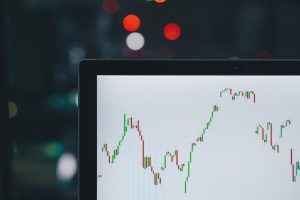Forex trading, also known as foreign exchange trading, is the buying and selling of currencies in the global market. The forex market is one of the largest financial markets in the world, with trillions of dollars being traded every day. The price level is one of the many factors that affect forex trading. The price level refers to the general level of prices in an economy, and it is usually measured by the consumer price index (CPI). In this article, we will explain how the price level affects forex trading.
Inflation and Deflation
The price level affects forex trading through inflation and deflation. Inflation is the rate at which the general level of prices for goods and services is rising, and the purchasing power of currency is decreasing. When inflation is high, the value of a currency decreases, and traders may sell that currency. This could lead to a depreciation in the currency. On the other hand, deflation is the opposite of inflation. It is the rate at which the general level of prices for goods and services is falling, and the purchasing power of currency is increasing. When deflation is high, the value of a currency increases, and traders may buy that currency. This could lead to an appreciation in the currency.
Interest Rates
The price level also affects forex trading through interest rates. Interest rates are the rates at which banks lend money to each other. When the price level is high, the central bank may increase interest rates to combat inflation. This could make it more expensive for traders to borrow money to invest in the forex market. When the interest rates are high, traders may sell the currency, leading to a depreciation in the currency. On the other hand, when the price level is low, the central bank may decrease interest rates to stimulate the economy. This could make it cheaper for traders to borrow money to invest in the forex market. When the interest rates are low, traders may buy the currency, leading to an appreciation in the currency.
Trade Balance
The price level also affects forex trading through trade balance. Trade balance is the difference between a country’s exports and imports. When the price level is high, the cost of production is also high. This could lead to a decrease in exports and an increase in imports. This would lead to a trade deficit, which could lead to a depreciation in the currency. On the other hand, when the price level is low, the cost of production is also low. This could lead to an increase in exports and a decrease in imports. This would lead to a trade surplus, which could lead to an appreciation in the currency.
Economic Growth
The price level also affects forex trading through economic growth. Economic growth is the increase in the production of goods and services in an economy. When the price level is high, the cost of production is also high. This could lead to a decrease in economic growth. This could lead to a depreciation in the currency. On the other hand, when the price level is low, the cost of production is also low. This could lead to an increase in economic growth. This could lead to an appreciation in the currency.
Conclusion
In conclusion, the price level affects forex trading in many ways. The price level affects forex trading through inflation and deflation, interest rates, trade balance, and economic growth. Traders need to be aware of the price level and how it affects the currency they are trading. By understanding the price level, traders can make informed decisions and maximize their profits in the forex market.





